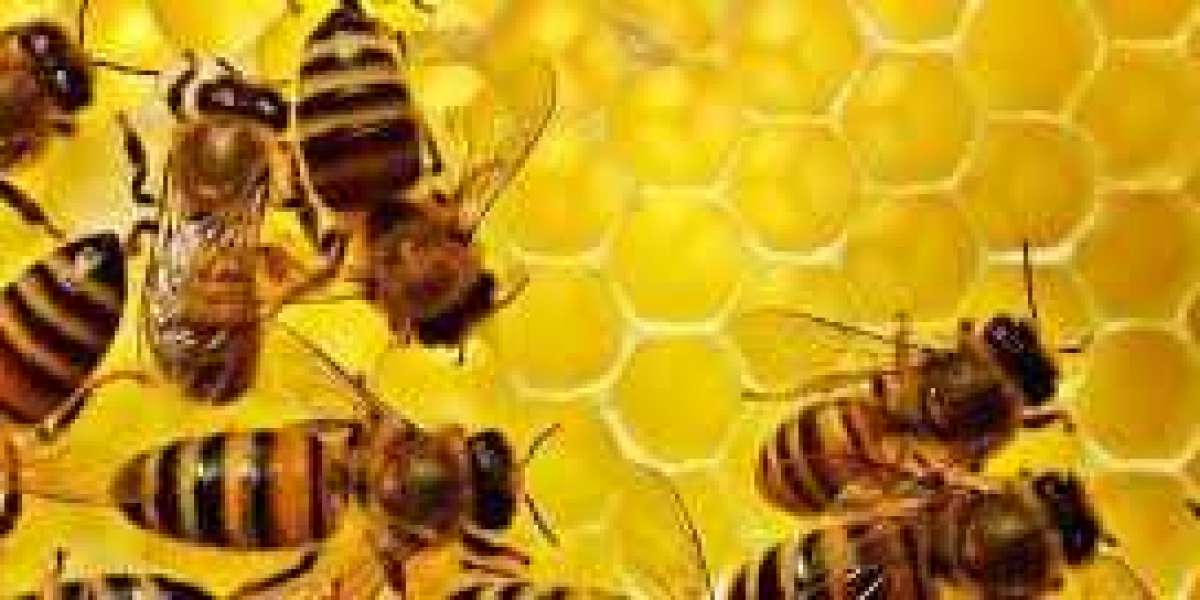Bees are some of the most fascinating creatures on our planet. They are responsible for pollinating plants, which means they play a huge role in growing fruits, vegetables, and flowers. Without them, our ecosystem would struggle to survive. Despite their importance, having bees too close to our homes or workplaces can sometimes lead to challenges. For example, a hive in your backyard or near a playground can make people nervous, especially those allergic to bee stings. So, how do you deal with bees in a way that keeps both people and these valuable pollinators safe?
This guide will walk you through the importance of bees, what attracts them, how to manage their presence, and steps to ensure their safe relocation when necessary. Let’s explore how to coexist with these buzzing helpers without creating conflict.
Understanding the Role of Bees
Before we jump into managing bees, it’s important to understand why they matter so much. Bees are not just random insects flying around. They’re a vital part of the food chain and the environment. When bees collect nectar and pollen from flowers, they help fertilize plants. This process, called pollination, is what allows fruits, seeds, and vegetables to grow.
Did you know that nearly one-third of the food we eat depends on pollination? Foods like apples, almonds, berries, and cucumbers rely heavily on the work of bees. Beyond agriculture, bees also contribute to maintaining healthy ecosystems by supporting wild plants and flowers.
While their role is crucial, it’s easy to see why people might feel uneasy around them. But with the right knowledge, you can safely handle situations involving bees.
What Attracts Bees to Your Space?
Bees don’t randomly decide to visit your yard or property. Certain factors draw them in, and understanding these can help you prevent unwanted encounters. Here are some common reasons bees might be hanging around your space:
- Flowers and Plants: Brightly colored flowers and plants with sweet scents are natural bee magnets. If your garden is filled with blooming plants, it’s a paradise for bees.
- Water Sources: Bees need water to survive. Ponds, bird baths, or even a dripping faucet can attract them.
- Shelter for Hives: Bees look for secure, dry places to build their hives. This can include tree trunks, wall cavities, or even unused furniture in your backyard.
- Food Left Outside: Sugary drinks, fruit scraps, or sticky residues can be very inviting to bees.
- Seasonal Changes: During spring and summer, bee activity naturally increases as they gather food and establish new hives.
How to Discourage Bees Without Harming Them
If bees are becoming a nuisance, there are ways to discourage them without causing harm. Remember, the goal is to keep them away from areas where they might cause trouble, not to hurt them. Here are a few tips:
- Seal Potential Hive Sites: Check for cracks or gaps in walls, roofs, or outdoor furniture where bees could build a hive. Seal these spaces to make them less attractive.
- Manage Your Garden: While flowers are beautiful, you can plant bee-repelling plants like mint, eucalyptus, or citronella around areas where you want fewer bees.
- Control Sweet Smells: Keep sugary foods and drinks covered when outside, and clean up spills quickly.
- Provide an Alternative Water Source: If bees are gathering around your pool or birdbath, consider placing a shallow dish of water with small pebbles far from where you spend time. This will give them a safer spot to drink.
- Use Natural Repellents: Essential oils like lemongrass, peppermint, and cinnamon can deter bees when applied near entrances or outdoor seating areas.
Handling a Bee Hive Near Your Home
Discovering a bee hive near your property can be intimidating. However, it’s crucial to approach the situation carefully. Bees are protective of their hives, and disturbing them can lead to stings. Here’s what to do:
- Don’t Panic: Stay calm and keep a safe distance from the hive. Avoid loud noises or sudden movements that might agitate the bees.
- Call a Professional: Reach out to a local beekeeper or pest control company experienced in bee relocation. These professionals know how to safely remove and relocate hives without harming the bees.
- Avoid DIY Hive Removal: Trying to remove a hive on your own is risky and can harm both you and the bees. Always rely on experts for this task.
- Mark the Area: If the hive is near a public spot, warn others to stay away until the situation is resolved.
Safe and Ethical Solutions
It’s worth noting that bees are protected in many places due to their importance to the environment. Some species are even endangered, making their conservation a priority. That’s why it’s essential to handle bees ethically.
When you reach out to a professional, ensure they use humane methods to relocate the hive. Many beekeepers will happily take the hive to add to their collection, where the bees can continue to thrive and contribute to pollination.
When to Seek Help
While it’s possible to manage small bee issues on your own, certain situations call for professional intervention. For instance, if you have a large hive inside your walls or bees are swarming aggressively, don’t attempt to handle it yourself. Experts can assess the situation and take appropriate action, ensuring safety for everyone involved.
In addition, if someone in your household has a severe bee sting allergy, it’s even more critical to act quickly. Let professionals resolve the issue to avoid any health risks.
Why Relocation is Better Than Eradication
Some people might think of spraying harmful chemicals to eliminate bees, but this approach has serious consequences. Pesticides not only kill bees but also harm other pollinators and can contaminate the environment. Relocation ensures that bees can continue their essential work without posing a risk to humans.
Beekeepers have the skills and equipment to safely move hives to new locations where the bees can thrive. This approach benefits both the environment and the community.
The Future of Bee-Friendly Living
As awareness grows about the importance of bees, more people are finding ways to live harmoniously with them. Whether it’s by planting native flowers, providing safe spaces for hives, or educating others about bees’ role in our world, every small effort makes a difference.
If you ever need help with bee control, remember that there are humane and ethical solutions available. By taking the right steps, you can keep your space safe while protecting these incredible creatures.














